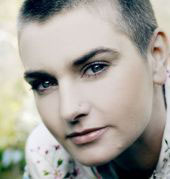 Walking into the Sherry Lansing Theater at Paramount Studios in Los Angeles last Thursday, I knew it wasn’t going to be an easy evening. While looking forward to the screening of “A Mighty Heart”–as I had read the Marianne Pearl memoir it was based on about three years ago–I dreaded the expected feelings of despair and anguish from viewing the tragedy surrounding the kidnapping and death of Wall Street Journal writer Danny Pearl.
Walking into the Sherry Lansing Theater at Paramount Studios in Los Angeles last Thursday, I knew it wasn’t going to be an easy evening. While looking forward to the screening of “A Mighty Heart”–as I had read the Marianne Pearl memoir it was based on about three years ago–I dreaded the expected feelings of despair and anguish from viewing the tragedy surrounding the kidnapping and death of Wall Street Journal writer Danny Pearl.
It can’t be denied there were moments where that theater chair felt uncomfortable, but the film was captivating, as humanity, and at times the lack of it, was eloquently depicted. From the Pearls’ love story to the account of the investigation by the then-pregnant Marianne with colleagues from the WSJ and Pakistani and American officials, I was intrigued almost as much by their interactions as how the search was conducted.
The latter because it was ultimately the point of the evening: To see how a Buddhist, Christians, Jews and Muslims came together to search for Pearl and how that unity could be built upon now.
That was literally expressed after the film with a panel discussion titled “Building Unity and Understanding in Today’s World,” and event co-sponsored by the Council on American-Islamic Relations, Progressive Christians Uniting, and Paramount Vantage, and which featured the following panelists: producer Dede Gardner, CAIR’s Hussam Ayloush, Jews on First’s Rabbi Haim Dov Beliak, and PCU’s Reverand Peter Laarman with Lisa Smithline from Interfaith Communities United for Justice and Peace moderating.
While it wasn’t unique to have a panel discussion after a film viewing, the five-minute break that included a prayer option outside the building was.
After the break, Smithline began the Q&A session by asking for a discussion on the choices one should make when faced with tragedy and fear, to which the panelists agreed that dialogue should always be the choice over violence. For example, on the subject of torture, Laarman said that members of the Christian community had to look at their own endorsements of torture. Ayloush added that at times in the film, certain characters gave the impression that torture was okay–but really it never is, and there is a need for change.
Isolating the voices of fanatics within the communities of Christianity, Judaism and Islam was part of Rabbi Beliak’s ideas of change. So, it was made clear by all the panelists that extremists in any religion don’t speak for an entire community.
But more importantly, when one from a religious community makes an extreme comment, it is up to the moderates to speak out against their co-religionist, said Laarman. Because ultimately, Ayloush added, this issue is a collective problem of the world and that everyone should strive together to reduce, if not eliminate, the root causes for violence that could be based on political, economic or religious reasons.
What remained unanswered at the end of the evening, especially after such an emotionally intense film, was tangible ways that everyone could really help. The panel was understandably under a time constraint of roughly 20 minutes, given it was getting late in the evening. At the same time, it didn’t seem to get any great new ideas on how and why everyone could develop more intra- and interfaith dialogue out.
I don’t mean to pick on the panelists, but these calls for dialogue aren’t really new and have been heard numerous times at interfaith occasions throughout the country. Of course there is some impatience on my part–in not wanting violence as a solution but wanting more action from conversation.
With what is happening in Darfur, Iraq, Israel and Palestinian territories and so on, I still wonder: How do moderates engage in successful dialogue with extremists who believe violence is part of the divine?
See clips from the film and read Beliefnet’s interview of “A Mighty Heart” here.
—Sara Shereen Bakhshian

